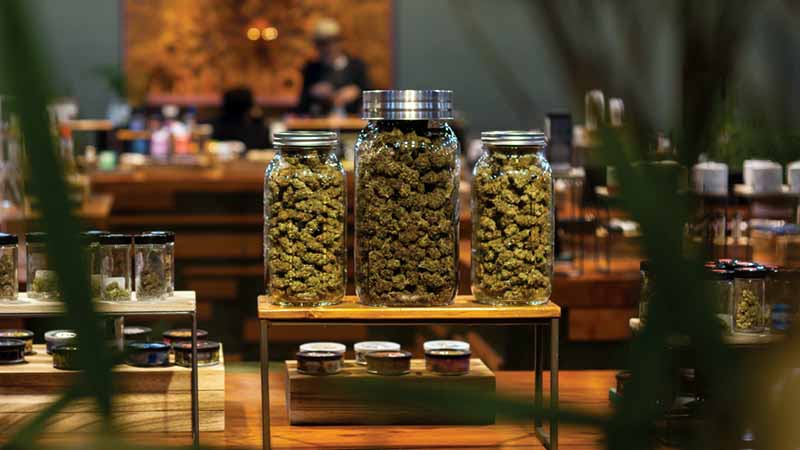Canadian growers have expressed frustration at supply chain inefficiency, which hinders competitivity against the unregulated market. Under the current system, licensed producers must sell cannabis through government-run wholesalers, who then supply private retailers and consumers. This distribution model favours larger businesses over small farmers, which can better absorb added middleman costs. Financial statements from the Ontario Cannabis Store (OCS), Ontario’s provincial wholesaler, suggested it charged retailers 30% more than it paid growers, with the hefty markups pricing cannabis above legacy competition.
Despite high margins the OCS has struggled to break even. The crown corporation lost $42 million in its first year and clawed back just $18.6 million in its second. Now, following input from the cannabis community, provinces plan to end their wholesale monopoly for a more inclusive cannabis industry that lets cultivators deliver straight to retailers. Currently only Saskatchewan has a distribution framework involves the private sector, but the free market has been praised for allowing the industry dictate wholesale prices and for driving competition.
FARM-TO-TABLE CANNABIS
In proposals outlined by the Government of British Columbia, farmers will soon be able to sell to retailers directly and to consumers through stores at their production sites. Farm-gate sales are already a prominent feature in BC’s wine industry, with farm-to-table cannabis empowering growers to profit from BC bud’s international prestige.
The amendments will enable customers to visit cannabis farms, see how their favourite strains are grown and speak with cultivators. The farm-to-table cannabis initiative would further destigmatize the industry, provide growers a crucial marketing opportunity and add a cannabis component to the province’s tourism portfolio. It is hoped immersive experiences will encourage people to buy local and benefit smaller producers, which have struggled to gain foothold in a market dominated by big business. The Government of Ontario has also released plans for farm-gate sales, but with a twist. Under Ontario’s scheme growers must sell to the provincial wholesaler first, and then buy it back. This enables the OCS to maintain a markup on all cannabis sold, despite not providing product distribution.
INDUSTRY INCLUSIVITY
Farm-gate sales are intended to provide rural farmers greater access to recreational cannabis consumers. There are over 1,000 regulated stores in Canada, but with the vast majority in cities product accessibility remains an issue. The availability of regulated cannabis is of biggest concern where unlicensed producers are prevalent. Disrupting the legacy industry was a key objective of the Cannabis Act, but in British Columbia 75% of cannabis is still sold under the table, with over 6,000 growing for medical purposes and just 20 licensed craft producers.
To entice First Nation growers away from the grey market, alongside farm-to-table cannabis British Columbia plans to stimulate industry inclusivity through the Indigenous Shelf Space Program. The initiative hopes to reserve retail shelves for cannabis grown by Indigenous communities, to showcase First Nation farmers and celebrate their contribution to BC bud. Only 4% of cannabis licensees have Indigenous affiliation, but the project plans to make it easy for consumers to identify and support these growers.
Direct delivery, farm-to-table cannabis and the Indigenous Shelf Space Program are all designed to promote a robust, diverse and inclusive cannabis industry. By allowing growers to sell on site and bypass provincial wholesalers, the amendments aim to drive cost efficiencies for producers while creating prosperity for rural communities.
A CHANGING LANDSCAPE
Under the amendments in British Columbia and Ontario, retailers cannot operate as ‘tied houses’ and must relinquish their connections to a sole grower. This ensures companies cannot employ vertical integration to outflank competition, but can strengthen their supply chain relationships with retailers. To nurture and maintain these relations, growers must be able to guarantee cannabis consistency and delivery, to keep shelves stocked and maintain sales traffic to stores.
To meet delivery deadlines and protect product standards, growers need to streamline operations with specialist solutions that accelerate processes, reduce downtime and enhance product quality. As producers become distributors, they must move away from solely cultivation to encompass logistics and marketing to maximize sales. This entails harnessing the benefits of direct distribution, such as data collection, to identify trends that drive product innovations for retailers and consumers.



